Recommends: Top 10 Love Stories to Indulge in on Valentines Day
- Kerry Chambers
- Feb 10, 2021
- 17 min read
Updated: May 29, 2021
‘What grace have I to fall so in love?’ - Lizzie West
Valentine’s Day is naff, we all know it. Coming from a bitter old hag like myself however, it sounds frivolous but it is what it is. For me, Valentine’s Day is an excuse to get out some much watched slosh and ignore the fact that reality, which is pretty lame most of the time, is more worse than ever. One must numb these feelings. How best to do that? By letting oneself get all mushy over some movies. Movies that make one believe in the power of love. That make one believe in the humans who still believe in love. To allow oneself to be consumed by the hopeless romantic they truly are.

Some of my choices are cliché, what can I say I love romance movies more than I care to admit. I may be a mood, a sceptic; but in stories, I think we humans should be allowed to get a little carried away. However, many of the films I discuss today, I believe, have slipped under the radar in recent years and deserve some more hype. Better still, I want to share some of the quirkier romances out there that really stand the test of time, some from across the globe and some little known that I have recently discovered myself. Please enjoy and see if there’s anything that catches your eye.

10. It Happened One Night (Dir. Frank Capra, 1934)
"Excuse me lady, but that upon which you sit is mine."
"I beg your pardon?"
My first entry on the list is a classic to many film lovers and older audiences. So I include it, hoping younger readers will spot it and think about checking it out. Known as the first screwball comedy, one of the most notable pre-code films, featuring some of the best stars of Classic Hollywood – Clark Gable and Claudette Colbert whose chemistry is sizzling – It Happened One Night still holds up in both its romance and its laughs. Also a kind of road movie, it follows an heiress, who runs away from home to elope with a rich man against her father’s wishes. On the way, clueless about the less genteel life, she eventually relies on the help of a journalist, who in exchange for assistance wants to sell her story and restore his reputation with his boss. A series of calamities later - on the run from her father’s men in pursuit, carrot-munching sass (a scene that later inspired the animators of Bugs Bunny), amusing attempts at blackmail, bus drivers distracted by ‘Flying Trapeze’, confusion as to the definition of a ‘piggy back ride’, and limbs proving mightier than thumbs- feelings begin to bloom between the quarrelling pair

Pleasantly witty and on occasion, laugh-out-loud funny, it’s still one of the best rom-coms Hollywood has ever made. Best still is how unexpectedly sexy it can be… you know, in a pre-code way. Never has a blanket on a string between two twin beds been so scandalous. Despite the leads hesitance towards the film, it won multiple Oscars including one for best actor (in which Gable was famously embarrassed about finding himself unworthy of it). It Happened One Night still feels modern, exploring a woman’s independence, a time when men and women on screen clawed into each other’s hearts. Not to mention it’s legendary. A scene of Clark Gable (ugh, I love him) undressing, revealing his bare chest was apparently the cause for the collapse of the under vest business, or so the legend goes. Still, for Classic Hollywood fables, it’s still more believable than the Munchkin suicide on the Oz Set.

Other Classic Hollywood romcoms still brilliant to this day: Roman Holiday (Wyler, 1953), Some Like it Hot (Wilder, 1959), My Man Godfrey (La Cava, 1936).
9. Becoming Jane (Dir. Julian Jarrold, 2007)
“My characters shall have, after a little bit of trouble, all that they desire.”
I love, love, love costume dramas. Historical films always get me fired up, and it is one of the few things the British can get right. It’s magical in its own way, to be transported to another time in history and divulge ourselves to the mysteries of etiquette and societal structures so different to our own. It’s a different form of escapism, to bask in worlds we will never be able to live ourselves. That is why I am including one of my favourites of all, the often underrated Becoming Jane. A Semi-biographical depiction of Jane Austen (a not wholly accurate one with much speculation), the film is a stunning piece on one of literatures most impressive women. It follows the author in her younger years, the misfortunes of her class, and the romance she shared with Tom Lefroy.

Yearning, shy exchanges on the dance floor, late night trysts in rose gardens and lusty if chaste exchanges in a library alone are every romance fans dream, but it’s made all the better by the performances of the fabulous Anne Hathaway and James McAvoy leading the cast. In fact all the cast are great, with James Cromwell, Julie Walters, and Maggie Smith also featuring. Furthermore, it’s a beautiful story that explores a woman a coming into her own, trying and failing at her dream but pushing forward. There’s heartache a plenty, far contrasting with the authors more optimistic novels, but I suppose that’s why I admire her all the more. This story perfectly captures the minute tragedies of love, romance, honour and duty and packs one hell of an emotional punch at its end.

Great romances based on brilliant English classic literature don’t go amiss either so how about checking out some of my favourite adaptations: Emma (de Wilde, 2020), Pride and Prejudice (BBC, 1995), Jane Eyre (Fukunaga, 2011) and Much Ado About Nothing (Branagh, 1993).
8. I’m a Cyborg, But That’s OK (Dir. Park Chan-wook 2006)
“I didn’t come with an instruction manual or a label on me anywhere. I still don’t know what my purpose is.”
Now the last director on earth I would imagine to do a rom-com would be Park Chan-wook, and yet here we are. After completing the infamous Vengeance trilogy, I imagine the man needed a break from all that gut-wrenching violence and grotesquery, thought maybe a lil’ love story could be the perfect project. And it’s a lovely lil’ love story. And it takes place on a Psychiatric ward.

A woman is in a dead-end job, making transistor radios day in and day out. One day, she snaps, convinced that she is a cyborg, beginning to live as a robot, talking predominantly to machinery and going as far as to live off of licking batteries. Eventually she is sent to a psychiatric ward where she is befriended by a schizophrenic patient who takes it upon himself to look over her. It’s such a strange film, but screams with tenderness. Had I seen this as a teenager, it would have fed into my much (desired but poorly executed) Emo aesthetic perfectly, but now as something of an adult myself, what I see is something that brings such a great relief to my soul – to love is to accept, to protect, to respect. From these two troubled people, they have found a happy medium that alleviates their biggest struggles and soothes their troubled souls. I love this film because it tells me that we are all broken, but broken people can be put back together by one another. It’s not perfect but it’s perfect for them.

For more light-hearted Korean Rom-coms check out P.S Partner (Byun Sung-hyun, 2012) and How to Use Guys with Secret Tips (Lee,2013), but for some K-Drama at its most touchingly melodramatic, try Always (Song Il-gon, 2011) and The Beauty Inside (Baik, 2015).
7. First Love: The Litter on the Breeze (Dir. Eric Kot, 1997)
"They are entwined, hot like fire..."
The most experimental on this list, but fun and fuzzy as much as any romance, First Love is one of the great Hong Kong films to be made under Jet Tone Films, Wong Kar-wai’s and Jeffery Lau’s production company. Kot’s film is contemplation on the filmmaking process, his experience on the film and behind the scenes in a faux documentary all the while reflecting and deconstructing story ideas with his cast re-enacting them for us in these microscopic worlds, playing around with roles and themes of love and romance in all its blossoming early days. And this is before divulging the two main stories he decides to tell. It sounds manic, and there is no doubt it is, but it’s sincere and sentimental in all the ways I love.

Because all these fragments and ideas, supported by such a brilliant cast involving the ever mad but loveable Takeshi Kaneshiro, Calvin Choi and Karen Mok, come together in two great, adoring, madcap tales. As the title suggests these two stories stem form first love. The first, my favourite, follows Kaneshiro’s garbage man who falls in love with a sleepwalking woman, spending his evenings looking out for her as she wanders the streets of Hong Kong. For the woman, aware of her nightly escapades, she attaches a camera to herself and upon reviewing the footage, finds herself enraptured by the strange man at her side. Meanwhile, in the second story, a former fiancée returns for revenge against her man who is now married. The world is not how it appears; people are naïve to love, and love makes them do strange things. We have two men, one who gives himself wholly and one who ran, the complexity of each decision as mysterious as the throngs of love that overcame them once. In the end, whatever it is they face, no matter happy or sad, a struggle or a joy – it was something worthwhile.

For more great Hong Kong romances, I would sincerely recommend Made in Hong Kong (Chan, 1997) and many of Wong Kar-Wai’s work including Chungking Express (1994), Fallen Angels (1995), In the Mood for Love (Wong, 2000). For a daft Hot Shots style comedy, with elements of romance and spoofing the Wuxia genre, The Eagle Shooting Heroes (Lau, 1993) is a must see, also made under Jet Tone Films.
6. The Lover (Dir. Jean-Jacques Annaud, 1992)
“We are lovers. We can’t stop loving.”
Saucy recommendation now… Well actually it’s much more than that. Starring Jane March and a fabulous Tony Leung Ka-fai (never looking finer), The Lover caused a stir when it first hit cinemas with rumours running rampant that the sex scenes were all unsimulated. They weren’t. The Lover is controversial for many reasons; the explicit love scenes, the true story behind the tale (the adaptation of Marguerite Duras most famous novella was based on far more autobiographical, basing her work on her own affair she had as a teenager), the themes all rather taboo. However, we see women’s agency being held over so many at such a young age, marred by the foolish pride of youth. But it’s handing of the subject matter, the exploration of the internal dilemmas of the nameless young girl coming to terms with her sexuality and the messy emotions that accompany it make for a story incredibly relatable.

In 1920’s Indochina, a French teenager, the daughter of a poverty stricken and bitter family, happens to meet a Chinese playboy on the ferry to her school. Despite their relationship defying the conventions of their societies, racial tensions running rampant from either side, they begin an illicit affair. However, when the young girl’s family learns of the relationship, they decide to tolerate it, instead indulging in the money that can be made from him to pay off their debts. All the while the couple indulge themselves in the time they have together, consumed by lust and a confusing, blossoming love. It’s a heart aching portrayal of the forbidden, of desire and fear. The stories most miserable hardships arise under racial scrutiny; the playboy is treated worse than the servants by the girl’s family. Meanwhile, the girl is not considered a marriageable proposition to his miserly father, who wishes for him to marry a Chinese heiress, proclaiming he would rather die than allow his son to marry a white woman. There is so much longing yet so much in between them. What they feel is so curious, hard to understand yet simple enough.

For more explicit, forbidden romances I would urge you to check out some of my other favourites; Lust, Caution (Lee, 2007), The Handmaiden (Park, 2016) and The Postman Always Rings Twice (Rafelson, 1981)
5. The Princess and the Pilot (Dir. Jun Shishido, 2011)
"I love flying in the sky. Your social status doesn't matter up here. You're free."
Anime has a unique way of exploring old, exhausted topics and filling them with a new lease for life. With beautiful eye for detail, stunning animation and a creativity one can only find in the fascinating minds of the Japanese filmmakers, it’s no wonder the appeal of anime for many is so overwhelming. Equal parts weird, beautiful, funny, heart-breaking, sensitive, and outrageous and all the bits in between, I can’t get enough of it either with so much to choose from and explore. The animators can tell stories like no others can and Japanese cinema has a unique perspective on the world. That’s why I was shocked to discover an Anime film that I enjoyed so very much, slip under my radar for so long. And I know I’m not the only one.

The Princess and the Pilot is outrageously underrated. More mature than its counterparts, it explores duty and honour, with a strong female lead coming into her own in a world where choice is often not open to her. A Princess, engaged to a Prince in neighbouring lands, a union that will unite their political power in a war-torn world, must be transported safely across oceans all the while under the scrutiny of enemy aircraft. Recruited for the mission is a mercenary pilot, a ‘Bastardo’ who looked down upon by his fellow soldiers and considered the lowest person in society, who must help her make to to safety in exchange for Gold. No one is to know that he was the one to do it, he must not tell another soul as they will report that the prince saved the Princess. However, on their adventure, the Pilot and his passenger begin to care for one another, becoming a team in the face of the enemy. Their lives are intertwined in many ways, their romance the most reserved on this list but full of so much respect. This is a beautiful film, with amazing flight sequences and gentle scenes, it’s less showy than most Anime romance, but the relationship between the two is far more honest, realistic as status and reality get in the way.

More recent anime with elements of romance I would recommend would be: Her Blue Sky (Nagai, 2019), Weathering With You (Shinkai, 2019), The Night is Short, Walk On Girl (Yuasa, 2017)
4. Tie Me Up, Tie Me Down! (Dir. Pedro Almodóvar, 1990)
“I had to kidnap you so you’d get to know me.”
Aren’t all love stories one person forcing their love on the other until they break down and give in? Sort of… Pedro Almodóvar thinks so. He takes this concept and pushes it as far as he can in the most Almodóvar way. Extravagant, shocking, sexy and ridiculous, somehow he also made a really great rom-com. I love this filmmaker, a director with very significant stages of his career form his cult early work to his awards darling, mature years and an always vibrant and outstanding vision. He takes a concept and spins it with his own web of absurdity, soul and melodrama, feeding from inspirations from Buñuel to classic Hollywood and creates something entirely original. No one is more Almodóvar than Almodóvar. The master of Spanish cinema.

So what’s the film I’m recommending? His anti-romance dark comedy and the film that brought him even wider international acclaim following his brilliant comedy Women on the Verge of a Nervous Breakdown (1988). Ricky is released from a mental asylum (played by regular Antonio Banderas) and seeks out the woman, Marina, he slept with years before who is now a successful porn star (Victoria Abril). He believes that they are destined for one another, so he kidnaps her, ties her up and holds her hostage until they fall in love. What follows is violent, funny, racy and downright dirty; it’s the perfect concoction of madness. Raunchy enough for the US that it helped implement the NC-17 rating, it’s still shocking to this day and to many who will miss Almodóvar’s wit and biting commentary could easily be offended by the concept. But as he deconstructs the form of the love story, he somehow makes a freaky romance in itself, with a cast of characters so likeable it’s easy to forget the crimes they commit to get where they want to be.

Other amazingly original romance stories from the best of Spanish-language cinema include; Open Your Eyes (Amenábar, 1997), Jamón, Jamón (Luna, 1992), Like Water for Chocolate (Arau, 1992) and Y tu mamá también (Cuarón, 2001)
3. Benny and Joon (Dir. Jeremiah S. Chechik, 1993)
“…you know, it seems to me that, I mean, except for being a little mentally ill, she's pretty normal.”
Quirk before it was cool and still sweeter than any oddball romance ever conceived; never again can I look up into a tree and not expect to find Sam staring right back at me. A comedy handling mental health, and still one of the best in my opinion, it’s also incredibly down-to-earth, avoiding the glamour so many rom-coms love to revel in and instead looking at a broken family, mental illness and a childhood tragedy that come in between siblings who tie one another down, even if its unintentional. And that takes the forefront of this story, as the titular characters need to let one another go and make their own lives. The cast is brilliant, made up of some of my favourite stars including Johnny Depp, Julianne Moore, Mary Stuart Masterson and Aiden Quinn.
The plot; big brother Benny (Quinn) is worried about his sister, Joon (Masterson). Her mental illness means she can’t be left alone and yet she struggles to get on with any hired housekeepers, often driving them away within days, and consistently gets into all sorts of problems when left unattended. One evening, they go to a friends to play Poker, and Joon participates with the stakes (errands and odd jobs in the place of money) getting a little out of hand. When she loses, she gains a cousin; illiterate, Buster Keaton loving Sam (Depp). It is clear there is a connection between she and him but with Benny still overprotective, their feelings are both meek and tender, as both their ‘weirds’ come together. The appearance of Sam has brought both siblings some much needed joy in life as Benny catches the eye of waitress Ruthie (Moore). It’s a broken people love story that I find so much joy in, so sweet and funny that I never get bored of watching it. Besides the romance, we see the touching tale of siblings learning to let go of one another and move into the next part of their lives. This is how you do quirk.; grilled cheese will never be the same again.

Other great Indie romances that never fail to blow me away are; What’s Eating Gilbert Grape?, (Hallström, 1994), Obvious Child (Robespierre, 2014) and Lars and the Real Girl (Gillespie, 2007).
2. Frankie and Johnny (Dir. Garry Marshall, 1992)
“I know I can't the make the bad go away. You're right, I can't. But when the bad comes again, I am gonna be next to you.”
Let’s get grounded again, but also kind like the story Almodóvar spoofed, but kind of not. An overlooked, unglamorous romance starring Al Pacino and Michelle Pfeiffer seems something of fantasy but it exists and thank goodness it does. As a huge, HUGE fan of him, I love Pacino so much in this! The most light-hearted movie he made in the nineties, it overjoys me that it exists. It’s still my favourite Hollywood rom-com and a truly underrated film. An adaptation of Terrence McNally 1987 two-characters play Frankie and Johnny in the Clair de Lune, it follows Frankie, a waitress in a small New York cafe, settling into a single life following two toxic relationships and Johnny, recently released from prison, trying to get his life back on track and taking a job as a short-order cook in the same restaurant. Upon meeting her, he becomes infatuated (as does everyone else, reminding them that they’re ‘Frankie and Johnny, just like the song) and despite her growing interest in him she shuts him down, wary of romance. Both are middle-aged, but whilst one has given up on love, the other still has a lust for life.

When compiling this list I realise how much I treasured the ordinary people love stories, the messy ones with no magic money tree appearing to solve their problems. Frankie and Johnny encapsulate it best of all. These are real people, who have grown up and lost their dreams along the way, where the future is now a scary place. All the characters are dissatisfied in some way, but are still living, somehow striving for the dreams so far on the horizon and unlikely to be reached. They’re lonely, everyone is lonely.

Some construe the plot of this story as anti-feminist, that a woman needs a man to be fulfilled and that men are allowed to be pushy to get what they want. But I don’t see it like that (although I don't recommend this method of wooing). Frankie is one of the most relatable heroines in rom-com history; she’s older and doesn’t trust men anymore, even shutting her heart off from her friends in fear of appearing vulnerable. But with Johnny, he wants her to feel vulnerable. To be open with someone is the scariest thing of all, there is an opportunity to try something again and she needs to take a leap of faith. I feel for her more than any; she has to make the final decision but she’s so resistant because life has been unfair; how is she to know it’s not another awful chapter. But he gets her, and she gets him. But the overall decision is for her. She still gets to make the choices. Somehow. This is real to me. Love is complicated. Worse still, so is getting older. And I don’t feel there are enough middle-aged romances in the world.

For more great nineties romances check out some of my favourites; Jerry Maguire (Crowe, 1996), Pretty Woman (1990) and As Good As it Gets (Brooks, 1997).
1. Secretary (Dir. Stephen Shianberg, 2002)
"We can't do this 24 hours a day, seven days a week."
"Why not?"
I’m gonna say it again, I love 'broken people' films; lost souls, unambitious human beings just trying to live and finding that hard enough without the added pressure of living a ‘normal’ life. They lives are messy, painful and sprinkled with the oddities of everyday living. Life is weight on them and it’s breaking them down, chipping away at them… How much more broken can you get that Lee Holloway in Secretary. Crippled by depression, low self-esteem, overbearing parents Lee only finds relief through self-harm, leads to her being briefly institutionalised. Upon release, she gets a job as a secretary in a law firm, with her eccentric boss Edward Grey (yeah, there was a kinkier Mr. Grey) requiring all his paper work to be hand-typed. Following some typos, the pair begin a BDSM relationship both funny and raunchy. In their dynamic, Lee experiences a sexual awakening, reclaiming her identity, her voice and confidence.

Maggie Gyllenhaal (What an actress, she picks some of the best independent projects and is always amazing in them) and James Spader (another actor I adore and I believe has given some of the best performances in cinema) play the leads in this film and how brilliant they both are, fully lapping up their roles and thriving off one another in each scene. Their love story is weird and naughty but they deliver it as though it’s a reasonable progression of a relationship. The controversy surrounding this film often comes from a misunderstanding of what the couples are about. To believe that she’s submitting to him is perceived as a negative when what it really is a power struggle that she is winning. She holds the cards. I love that through a submissive relationship, Lee discovers her agency as a woman and the power she can hold.
There is something in these two people that fit together, they understand one another, the desperation of their situation and he gives her confidence to be the best version of herself. It’s a healthier depiction of love than most of the Netflix teen movies. It’s off-beat but sincere and tender whilst daring the audience to pass judgement on them. It's also really funny. Overall, it fills my heart with comfort I rarely find in your average mainstream romance; it has troubled people without romanticising the troubles they suffer and finds a way to reassure me like none other. It’s shocking, messy and honest but perfect. As Lee’s psychiatrist says in the final act of the film; ‘…who says that love has to be soft and gentle?’.

James Spader has appeared in some amazing projects, sometimes a romantic lead, sometimes a bitchy villain and sometimes something else entirely. For more Spader Magic check out: Sex, Lies and Videotape (Soderbergh, 1989), White Palace (Mandoki, 1990) and Pretty in Pink (Deutch, 1986).
There we have it, my favourite underrated gems of the romance genre. We’re living in a weird time, where romance has died a little bit on screen what with all our pessimism and ludicrous self-awareness drowning it in a bath-tub of acid. So we need somewhere to escape to. I hope my recommendations, including the top ten and the many I give throughout and after, will sweep you off your feet just as much as they had done to me.

Other Personal Favourites of mine because I’m not all ‘tragic-romance-weird-taboo-or-unconventional relationships’- I’m a total sap for the rest:
Classic Romances: Brief Encounter (Lean, 1945), Dangerous Moonlight (Hurst, 1941), That Hamilton Woman (Korda, 1941), A Matter of Life and Death (Powell & Pressburger, 1946), Gone with the Wind (Fleming, 1939), Casablanca (Curtiz, 1942), The Adventures of Robin Hood (Curtiz & Keighley, 1938), Now, Voyager (Rapper, 1942), Possessed (Brown, 1931), La Belle et la Bête (Cocteau, 1946).
Modern Classics: An Officer and a Gentleman (Hackford, 1982), Ghost (Zucker, 1990), Dirty Dancing (Ardolino, 1987), The Way We Were (Pollack, 1973), Out of Africa (Pollack, 1985), Indecent Proposal (Lyne, 1993), Meet Joe Black (Brest, 1998), Edward Scissorhands (Burton 1990), House of Flying Daggers (Yimou, 2004).
Rom-coms: Bridget Jones Diary (Maguire, 2001), Four Weddings and a Funeral (Newell, 1994), Notting Hill (Michell, 1999), When Harry met Sally (Reiner, 1989), Splash (Howard, 1984), Only You (Jewison, 1994), What Women Want (Meyers, 2000), Reality Bites (Childress, 1994), You Are My Destiny (Miniseries - South Korea,2014)
Romances in Disguise: A Bittersweet Life (Kim, 2005), Bram Stoker’s Dracula (Coppola, 1992), An Evening with Beverly Luff Linn (Hosking, 2018), Melancholic (Tanaka, 2018)
Indie Romance: Eagle Vs. Shark (Waititi, 2007), Eternal Sunshine of the Spotless Mind (Gondry, 2004), Chasing Amy (Smith, 1997), Love Exposure (Sono, 2008), Fine, Totally Fine (Fujita, 2008)
Coming-of-Age Romance: Sixteen Candles (Hughes,1984), Say Anything (Crowe, 1989), Call Me by Your Name (Guadagnino, 2017), Moonlight (Jenkins, 2016), She’s All That (Iscove, 1999), The Princess Diaries (2001).
Period Romance: Sense and Sensibility (Lee, 1995), Atonement (Wright, 2007), Anna Karenina (Rose, 1997), The End of the Affair (Jordan, 1999).
Animated: Your Name (Shinkai, 2016), Anastasia (Bluth & Goldman, 1997), The Swan Princess (rich, 1994), Corpse Bride (Burton, 2005), Hercules (Clements & Musker, 1997), Pocahontas (Goldberg & Gabriel, 1995), Ferngully (Kroyer, 1992), Ride Your Wave (Yuasa, 2019), Howls Moving Castle (Miyazaki, 2004), A Silent Voice (Yamada, 2016), Beauty and the Beast (Trousdale & Wise, 1991).



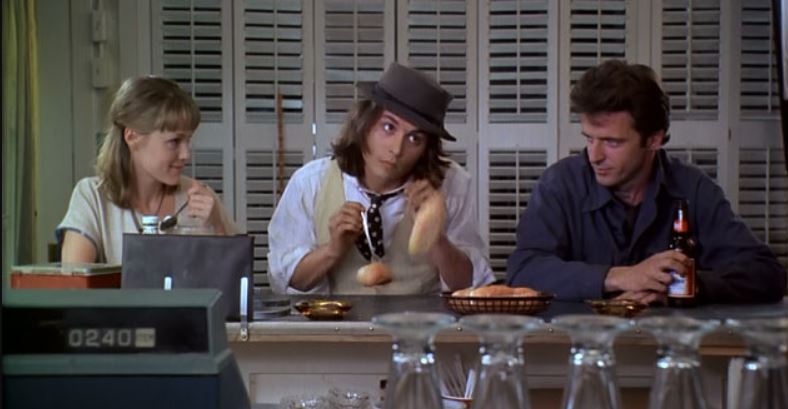

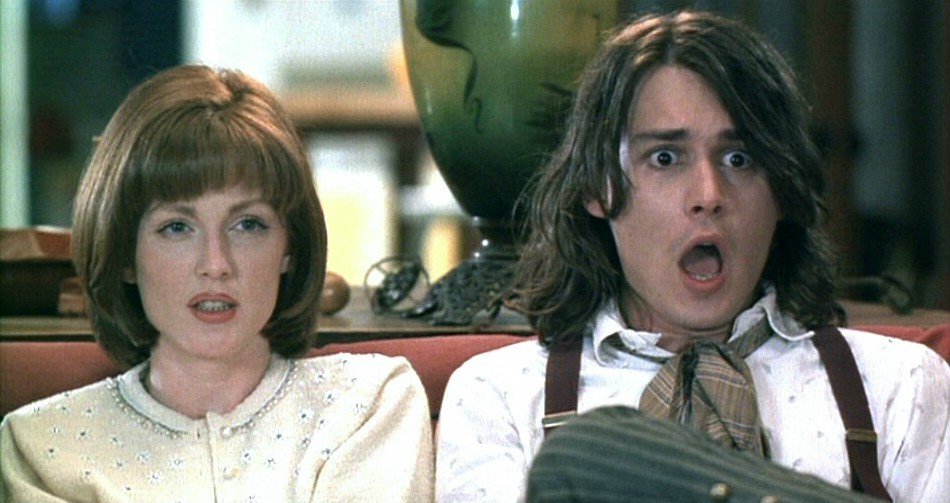

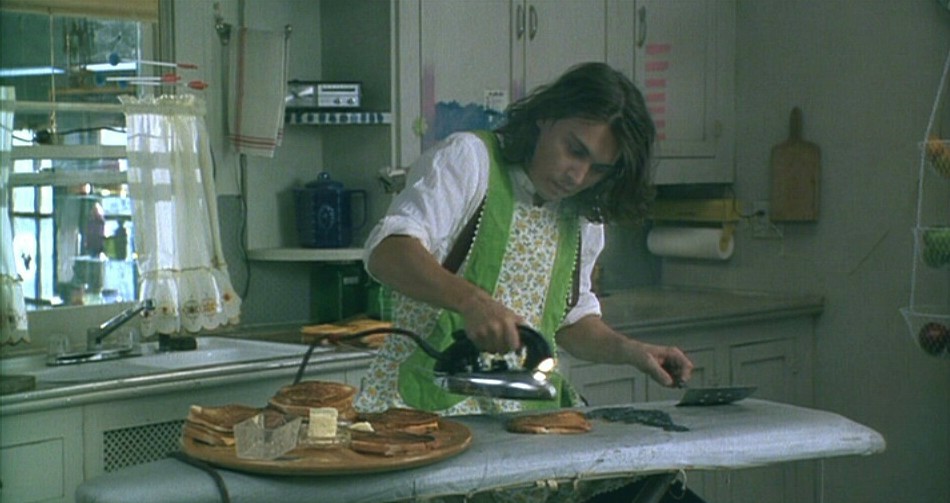

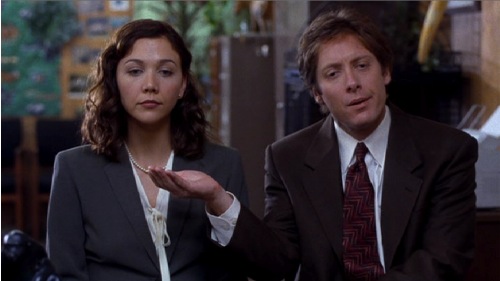
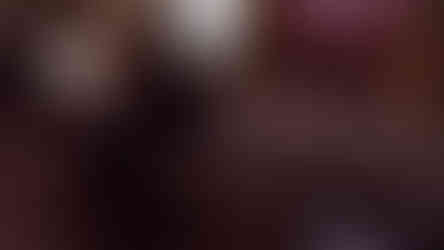


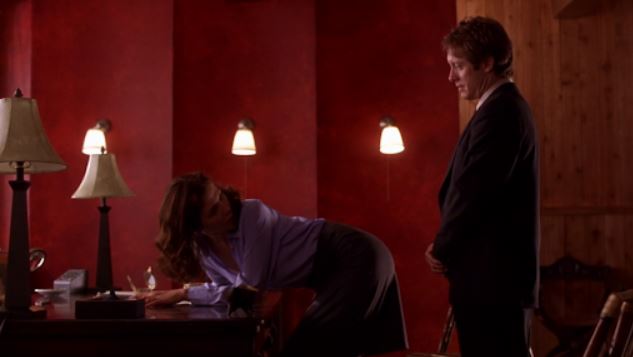



Comments